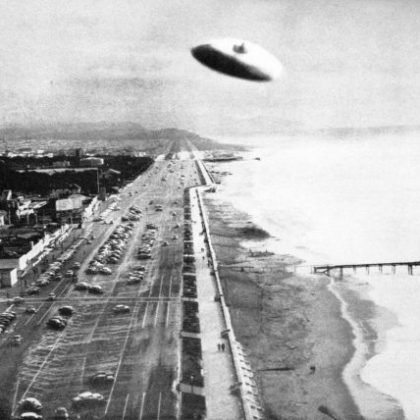R.E.M. guitarist Peter Buck isn't especially geared toward nostalgia.
Since the pioneering alternative group disbanded in 2011, Buck has operated at a prolific clip. He's released a string of vinyl-only solo albums on the venerable Mississippi Records label, played with the Baseball Project, and worked with Joseph Arthur. Recently, his band Filthy Friends -- featuring Corin Tucker of Sleater-Kinney, Scott McCaughey of the Minus 5, Kurt Bloch of the Fresh Young Fellows and drummer Bill Rieflin (King Crimson, Swans, Ministry) -- released a rager, "Despierata," as part of Dave Eggers' anti-Trump musical campaign 30 Days, 30 Songs. And just last week saw the release of Alejandro Escovedo's Burn Something Beautiful, which was co-produced and co-written by Buck.
In the middle of all that, Buck helped assemble the 25th anniversary edition of Out of Time, the record that took R.E.M. from a cult Athens, Georgia, rock band to a pop cultural force. Packed with hits like "Losing My Religion" and "Shiny Happy People," along with meditative songs like "Belong," "Country Feedback," and "Low," the group's seventh album blended folk, funk, country & western, and power pop influences to help establish the template for what "alternative rock" would become at the start of a new decade. Available November 18th, the deluxe retrospective edition of the album features alternate takes, demos, music videos, and a live set from Mountain Stage.
Buck admits he's not the most backward looking guy by nature, but still says revisiting the album was "a gift," representative of a shift in the group's career and an increasing willingness to blend genres and styles. Speaking with AD via telephone, Buck discussed his interest in hip-hop, taking on Donald Trump through song, and the experience of revisiting Out of Time. The conversation has been edited for clarity and condensed.
Aquarium Drunkard: You seem focused primarily on the present. Was going back and putting the 25th anniversary edition of Out of Time a strange process for you?
Peter Buck: It's strange but it's also a gift. Because, prior to the band no longer working together, there was a continuum. Each vignette was dependent on what the previous thing was, and the later thing, and what happened ten years later. Now it's history, for better or worse. It is what it is.
Only the good shit. Aquarium Drunkard is powered by its patrons. Keep the servers humming and help us continue doing it by pledging your support.
To continue reading, become a member or log in.
